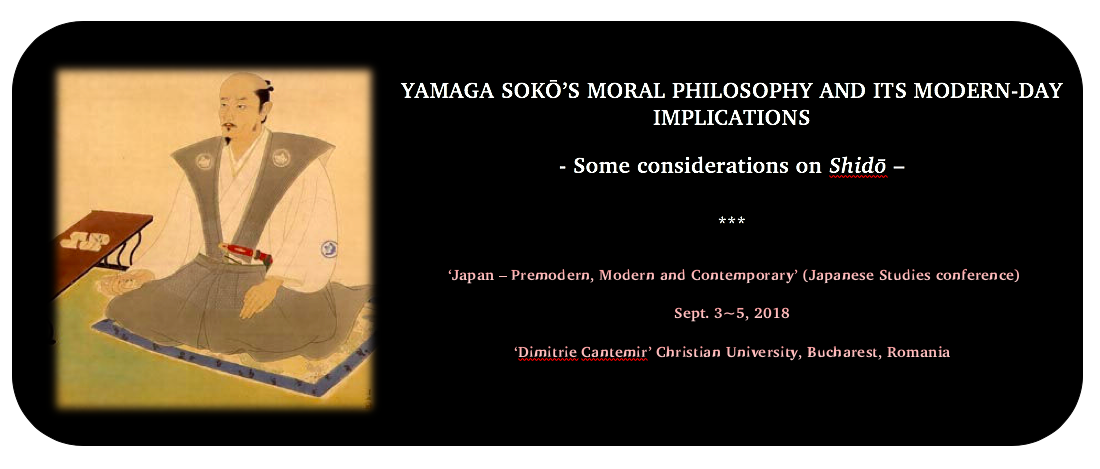
09 Aug [Upcoming] Yamaga Sokō’s moral philosophy and its modern-day implications (conference presentation)
Yamaga Sokō’s moral philosophy and its modern-day implications – Some considerations on Shidō
‘Japan – Premodern, Modern and Contemporary’ (Japanese Studies conference)
September 3~5, 2018
‘Dimitrie Cantemir’ Christian University, Romania
[Presentation abstract]
Yamaga Sokō 山鹿素行 (1622-1685) is a central yet controversial figure in Japanese intellectual history. Born to a bushi family at a time when Shushigaku 朱子学 scholars dominated the Tokugawa intellectual scene, he received his Confucian education under Hayashi Razan 林羅山 (the founder of the Shushigaku school), while simultaneously pursuing an education in military arts. Although not a major figure during his lifetime, Sokō did establish himself as the founder of a new school of Confucianism (Kogaku 古学 – Classical studies), which turned away from the overly scholastic Neo-Confucianism of the Shushigaku tradition and encouraged a return to the Confucian classics as a source of meaningful learning. Moreover, a firm believer in Confucian philosophy as an essential resource of social and moral change, Sokō also turned out to be one of the first Japanese Confucian intellectuals to try and make sense of a transitional feudal society, which was partly suffering from a severe sense of disenfranchisement among the military class. One of the texts resulted as part of this effort is Shidō (士道, commonly translated today as The Way of the Samurai), a mélange of life philosophy and moral guidelines to serve as a model of a socially integrated, harmonious existence for the Tokugawa samurai.
Although not necessarily Sokō’s most well-known text, Shidō is representative for at least two reasons: on the one hand, it is one of the first ‘home-grown’ Japanese texts of Confucian moral and political philosophy, dealing with the specific social and political context of the Tokugawa period; on the other hand, it puts forth some of the critical values later incorporated (and heavily politicized) into the modern bushidō myth, the national polity of the Meiji and Taishō periods and – by extension – modern notions of public and private morality.
In this context, my presentation will attempt to analyse the moral philosophy put forth by Sokō in Shidō, while decanting it of later propagandistic interventions and pondering its modern-day implications.

No Comments